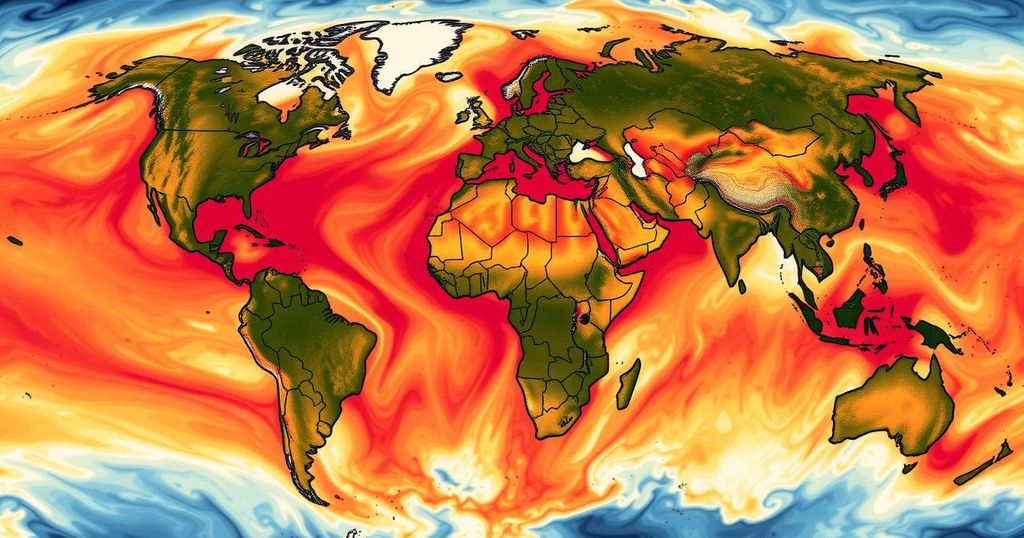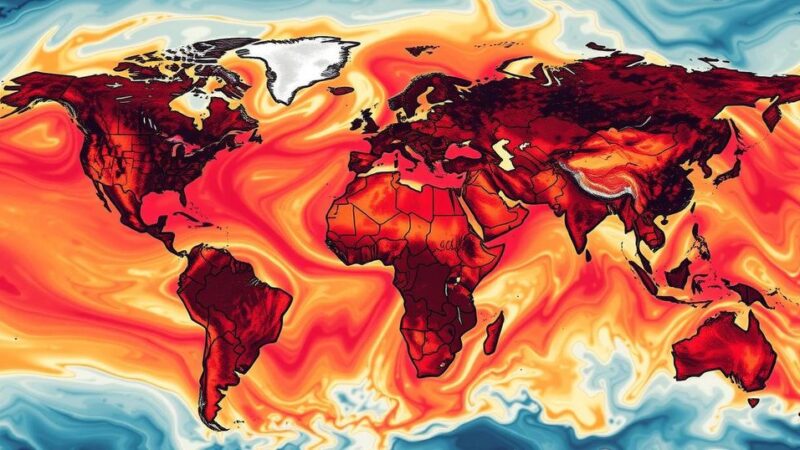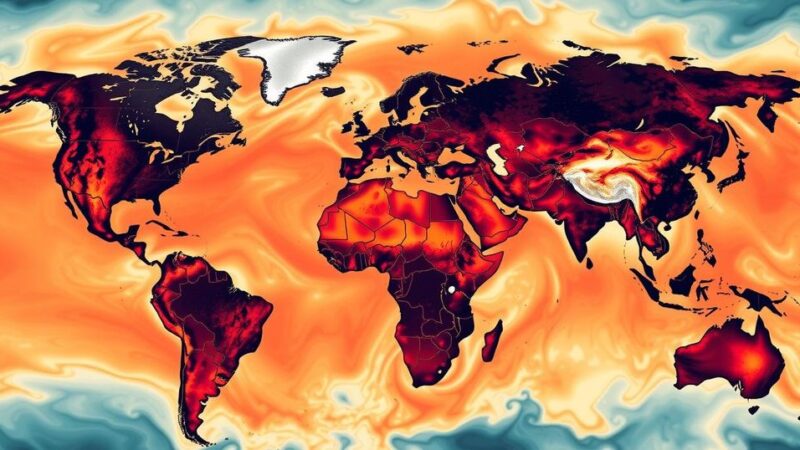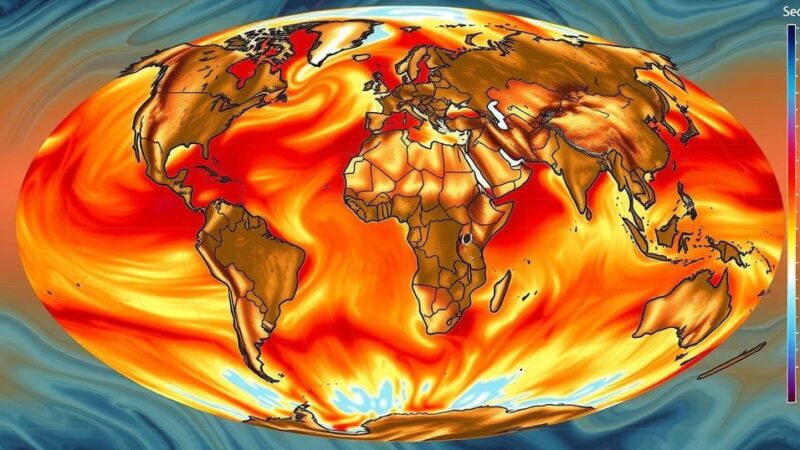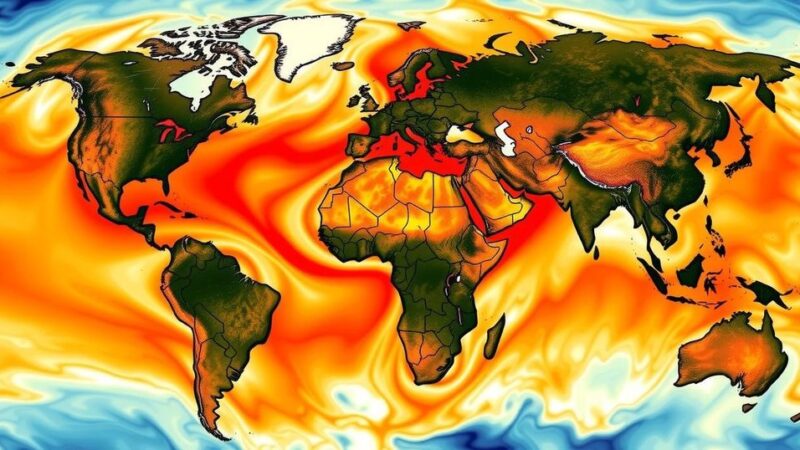The year 2024 has been confirmed as the warmest year on record globally since 1850, with an average temperature of 15.1 degrees Celsius, surpassing previous records and the critical 1.5 degrees Celsius threshold established by the Paris Agreement. High levels of atmospheric water vapor have contributed to extreme weather events, highlighting the urgency for decisive global action against climate change.
On January 10, 2024, the Copernicus Climate Change Service (C3S) revealed that the year 2024 has officially become the warmest recorded year globally since temperature records began in 1850. This significant milestone highlights the urgent need for immediate and substantial action against climate change. The global average temperature in 2024 reached 15.1 degrees Celsius, surpassing the previous record set in 2023 by 0.12 degrees Celsius. Notably, this year marks the first instance in which the average global temperature exceeds the critical threshold of 1.5 degrees Celsius above pre-industrial levels as set by the Paris Agreement.
The Copernicus report indicated that the two-year average for 2023 and 2024 also surpassed the 1.5 degrees Celsius threshold, reinforcing concerns about climate change. The Paris Agreement aims to limit global warming to well below two degrees Celsius, with a target to contain it at 1.5 degrees Celsius by the century’s end. Despite the significant increase, C3S clarified that this does not imply that the Paris Agreement limit has been breached, as temperature anomalies are assessed over a minimum of twenty years. However, the data emphasizes that contemporary global temperatures are unprecedented in human history.
Furthermore, 2024 witnessed the highest recorded levels of water vapor in the atmosphere, approximately five percent above the 1991-2020 average, which contributed to severe heatwaves and heavy rainfall events experienced worldwide. These phenomena have led to substantial suffering for numerous individuals. C3S climate scientist Julien Nicolas pointed to human-induced climate change as the primary driver of these extreme temperatures, further noting that natural climate patterns like the El Niño Southern Oscillation contributed to the situation. C3S Director Carlo Buontempo stressed the importance of immediate action, stating, “the future is in our hands — swift and decisive action can still alter the trajectory of our future climate.”
The report from the Copernicus Climate Change Service (C3S) serves as a critical reminder of the worsening impacts of climate change on a global scale. It indicates that the planet’s rising temperatures are significantly surpassing thresholds established to ensure a stable climate. The findings are pivotal for policymakers, scientists, and the global community as they underline the urgency for immediate action to mitigate climate change effects. This report connects with ongoing international efforts, particularly the Paris Agreement, aimed at limiting temperature increases and addressing the impending climate crisis, which increasingly affects millions worldwide.
The confirmation that 2024 has become the warmest year on record illustrates the dire consequences of climate change and the urgent need for global action. The data signifies a critical moment as the average global temperature has crossed the crucial threshold of 1.5 degrees Celsius above pre-industrial levels. The Copernicus Climate Change Service underlines that without proactive measures, the trajectory of climate change will continue to escalate, resulting in further environmental and humanitarian crises. Immediate and impactful action is essential to alter this trajectory and secure a sustainable future for all.
Original Source: www.socialnews.xyz

